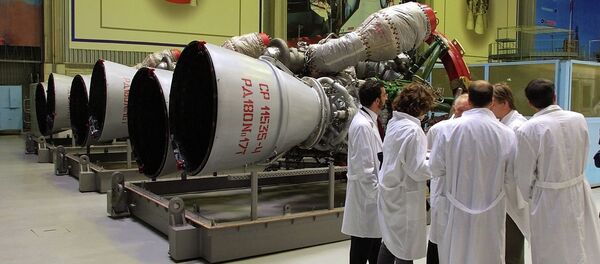However, after the Washington-fomented February coup in Ukraine in 2014, the Russo-American relationship has deteriorated.
The Pentagon has faced the painful dilemma of whether or not to abandon the RD-180, a cost-effective booster engine with unique features, which powers the Atlas 5 rocket built by United Launch Alliance, a joint venture of Lockheed Martin Corp and Boeing Co.
Sen. John McCain, the chairman of the Senate Armed Services Committee, believes that the US Air Force should stop buying Russian rocket-engines as soon as possible.
In order to overcome the US Air Force's Russian engines "addiction," Senator McCain and Majority Leader Rep. Kevin McCarthy have proposed legislation which would ban the import of the NPO Energomash RD-180 engines by 2019.
"It is morally outrageous and strategically foolish to ask American taxpayers to subsidize Russia's military industrial base," McCain said in an official statement, referring, predictably, to Russia's non-existent invasion of Ukraine and Moscow's imaginary threat to Europe.
It is turn the Air Force says that it has no alternative but to use the Russian engines, Dave Majumdar, the Defense Editor of The National Interest, notes in his article.
The service argues that "it is required by law to provide short access to space using commercial services," the journalist points out, explaining that the Pentagon needs eighteen RD-180s "on hand at any time" for its heavy lifters. Whether one likes it or not, right now there is no viable alternative to the RD-180 booster engines.
"We must keep in mind the only launch vehicles that can reach the full range of orbit and carry our heaviest payloads today, remain the Atlas and Delta families," Air Force secretary Deborah Lee James told the Senate Armed Services Committee, as quoted by Majumdar.
Deborah Lee James, secretary of the Air Force, says service believes it needs 18 RD-180 engines for competition. (NDAA provided nine.)
— Mike Gruss (@Gruss_SN) 27 января 2016
Robert Orton Work, the current United States Deputy Secretary of Defense, said in an official statement on Wednesday that the Pentagon regards public-private partnerships as a way to suspend the reliance on Russian boosters. The initiative is expected to be kicked off in fiscal 2017.
However, Work added that it is not until 2021 or 2022 that the Pentagon will stop using the Russian-made engines.



